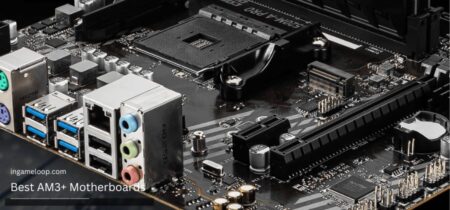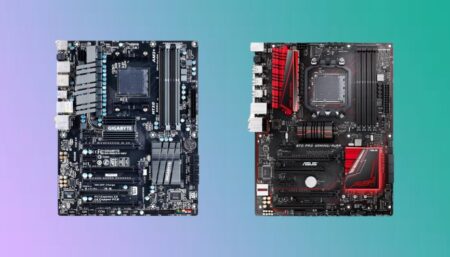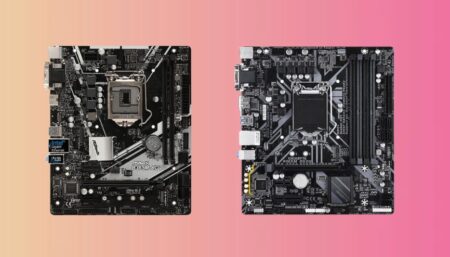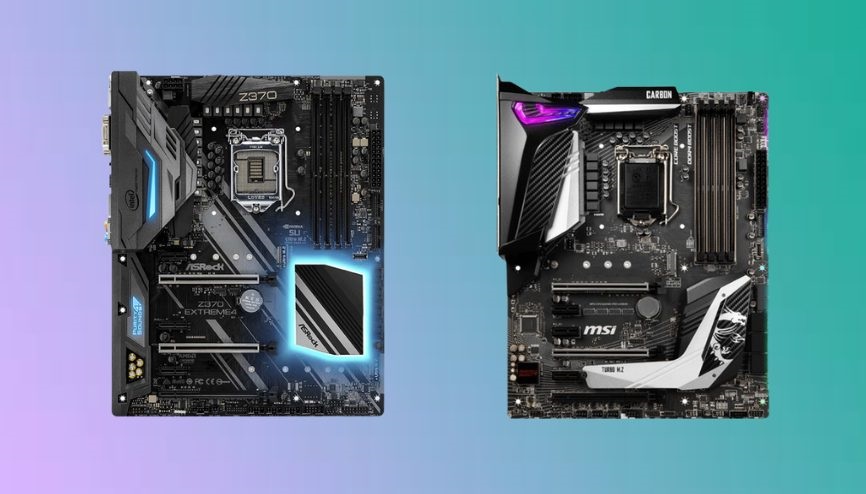
The Intel Core i7-9700K is an 8-core, 8-thread unlocked 9th generation Coffee Lake desktop processor that can boost up to 4.9 GHz. With its high single core and multi-core performance, the i7-9700K is a popular choice for programming, 4K gaming, live streaming, and content creation builds. However, to take full advantage of this CPU cores, it is critical to pair it with a compatible i7 9700k motherboard. Choosing the best motherboard for i7 9700k involves understanding key aspects like VRM phases, heatsinks, BIOS settings and onboard audio to ensure optimal performance.
| Award | Design | Best | Retailer |
|---|---|---|---|
| Best Z390 Motherboard For i7 9700k |  | View | |
| Best Z390 Motherboard for i7 9700k | 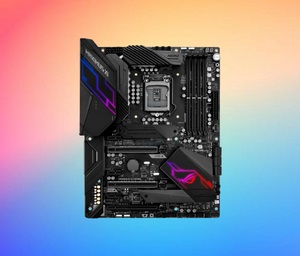 | View | |
| Best Mini ITX Motherboard For i7 9700k | 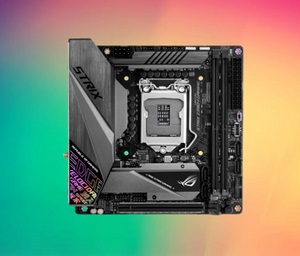 | View | |
| Best Value Motherboard For i7 9700k | 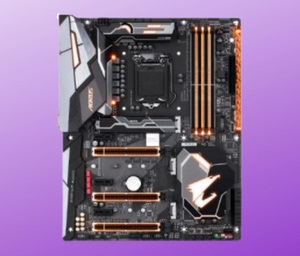 | View | |
| Best Gaming Motherboard For i7 9700k | 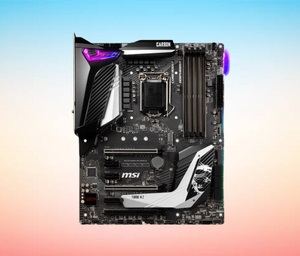 | View | |
| Best Micro ATX Motherboard for i7 9700K |  | View | |
| Best Intel Motherboard for i7 9700K | 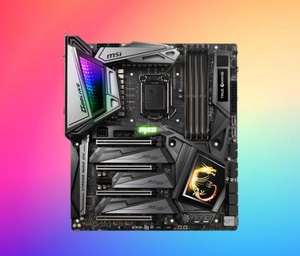 | View | |
| Best Budget Motherboard for i7 9700k | 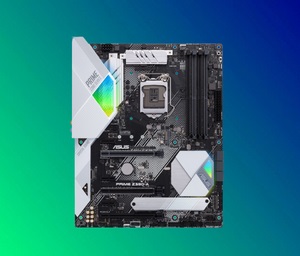 | View |
The “K” variant goes clock speed between 3.6GHz base clock and 4.9GHz boost clock speed. But if there is a high-end cooler, you can achieve the 5.0GHz mark. The motherboard lets different computer elements coordinate and performs various tasks. Therefore, you must purchase a good-quality motherboard while building a custom gaming rig or purchasing a pre-built PC.
- 8 Best Motherboard For i7 9700K
- Gigabyte Z390 Motherboard
- ASUS ROG Maximus XI Hero Z390
- ASUS ROG Strix Z390-I Motherboard
- Gigabyte Z370 Aorus Gaming 7
- MSI MPG Z390 Gaming Pro Carbon
- ASUS ROG Strix Z370-G Gaming
- MSI MEG Z390 Godlike E-ATX
- ASUS Prime Z390-A
- Buying Guide for Selecting the Best Motherboard for i7 9700K
- Chipset
- Socket
- Power
- Cooling
- Memory support
- PCIe lanes
- Overclocking
- i7-9700K Motherboard Compatibility
- Z390 Chipset
- H370 Chipset
- B365 Chipset
- H310 Chipset
- Conclusion
- Frequently Asked Questions
8 Best Motherboard For i7 9700K
Gigabyte Z390 Motherboard
Best Z390 Motherboard For i7 9700k

Brand: Gigabyte | Chipset: Intel Z390 | Socket: LGA 1151 | Form Factor: ATX | Memory: 128 GB DDR4 | Memory Speed:4400 MHz
REASONS TO BUY
✓Easy to install and get up
✓Stable and high quality motherboard
REASONS TO AVOID
✗BIOS/software issues
✗RGB software is buggy
The GIGABYTE Z390 AORUS ULTRA is a compatible motherboard for i7 9700k offering powerful power delivery system with 12+1 digital power phases and advanced cooling via a direct touch heatpipe. This allows stable overclocking of both the CPU and RAM. For storage there are plenty of SATA ports and M.2 slots to accommodate large capacity SSDs and HDDs. It can support up to 128GB of fast DDR4 RAM clocked at 4400MHz. There is built-in Intel WiFi and Bluetooth connectivity which worked seamlessly out of the box.
The RGB lighting implementation looks great and can be customized, though the software needs improvement. It also has a dual BIOS for redundancy, fan headers for controlling case and CPU fans, and good audio quality comparable to dedicated DACs. The board layout is well designed with all necessary headers in convenient locations. However, there are concerning reports of DOA boards or those failing after a few months of use. Customer service seems very poor based on multiple accounts, with unhelpful and slow RMA resolution.
BIOS issues like compatibility problems, failing to detect hardware properly, stuck boot loops were also reported. While the Z390 AORUS ULTRA seems like a quality motherboard on paper, with robust power delivery and nice features, the poor QC and RMA process means it carries a risk of getting a faulty board. Unless these quality control and customer service issues are addressed by Gigabyte, it makes brands like Asus and MSI a safer choice for a high-end Z390 build.
ASUS ROG Maximus XI Hero Z390
Best Z390 Motherboard for i7 9700k

Brand: ASUS | Chipset: Intel Z390 | Socket: LGA 1151 | Form Factor: ATX | Memory: 128 GB DDR4 | Memory Speed: 2400 MHz
REASONS TO BUY
✓RGB shrouds
✓Built-in Wifi
REASONS TO AVOID
✗Expensive
ASUS ROG Maximus XI Hero Z390 is the best z390 motherboard for i7 9700k due to its comprehensive cooling options, 8+2 power phase design, 5-way optimization for simplified overclocking, SupremeFX audio, Intel Gigabit LAN, pre-mounted I/O shield, RGB lighting, M.2 heatsink, durable components, and AI overclocking. In addition, the dual-GPU support makes it the ideal option for gamers, content creators, and other top-tier graphics enthusiasts.
Regarding memory specifications, you can fit four DDR4 DIMMs to make up to 64GB RAM and run it with 4400MHz of memory speed. Besides that, you get plenty of USB ports, six SATA 6Gb/s connectors, five PCIe 3.0 connections, and a pair of two M.2 connectors for expansion purposes. We don’t see many motherboards in this budget with wireless options. But this has WiFi 6 802.11AC support and Bluetooth, so you can connect different devices wirelessly and keep your desktop as clean as possible.
The cherry on top is the Intel Gigabit Ethernet controller with LANGuard technology for networking utility. Suppose you have the latest top-tier Intel 9th-generation CPU that can overclock to extreme limits. The 10-phase power design will support the overclocking performance in such a case. Also, the FanXpert 4 cooling technology will ensure an adequate temperature. Design-wise, the motherboard has an all-black PCB with ROG branding on the heatsink and four RGB headers.
ASUS ROG Strix Z390-I Motherboard
Best Mini ITX Motherboard For i7 9700k

Brand: ASUS | Chipset: Intel Z390 | Socket: LGA 1151 | Form Factor: Mini ITX | Memory: 64 GB DDR4 | Memory Speed: 2400 MHz
REASONS TO BUY
✓Aura Sync support
✓RGB shrouds
✓Inbuilt Wifi
✓USB Type-C port
REASONS TO AVOID
✗Expensive
✗No SLI support
✗No Crossfire support
✗Only 2 DDR4 RAM slots
The smaller-than-normal ITX estimated ASUS ROG Strix Z390-I Gaming is one of just a few Z390 motherboards to have an HDMI 2.0 video yield, and what’s more, it is a solitary DisplayPort. An Intel I219V Gigabit LAN port is available with radio wire connectors for the included 2T2R Wave 2 802.11ac Intel 9560 Wi-Fi connector. The USB looks somewhat dull, contrasted with the ASRock Z390 Phantom Gaming-ITX/air conditioning with two USB 3.1 Gen2 Type-A, two USB 3.0 Type-A, two USB 2.0, and a solitary USB 3.0 Type-C ports; no USB 3.1 Gen2 Type-C capacities by any means.
The completing contacts to the Strix Z390-I Gaming is a Realtek-based SupremeFX S1220A HD sound codec which controls the five 3.5 mm sound jacks and S/PDIF optical yield. The ROG logo adorns a thick aluminum M.2 shield with PCIe x4 and SATA-based M.2 drives. A front motherboard, USB 2.0, and a framework fan header are underneath it, the Front Panel sound is behind it, and two SATA 6 Gb/s ports are before it. The metal-protected PCIe x16 space more remote underneath it highlights four metal support pins to forestall harm while moving around finished frameworks that have overwhelming GPUs.
A USB 3.0 front-board header, two SATA ports, a PC Speaker, a front-board switch/LED header, and the aforementioned addressable RGB LED connector are situated along the front edge underneath the 24-pin essential force jack. Over that jack, four status LEDs demonstrate the introduction of the boot gadget, designs gadget, DRAM, and CPU. It has two more fan headers found on either side of the “STRIX”- marked back voltage controller heat sink, and the front-board USB 3.1 header is pushed into the upper back corner. If you’re stressed over CPU cooler freedom, the top warmth sink ventures 27mm over the motherboard’s surface, around 20mm over the CPU, and the back sink stands 10mm higher.
Gigabyte Z370 Aorus Gaming 7
Best Value Motherboard For i7 9700k

Brand: Gigabyte | Chipset: Intel Z370 | Socket:LGA 1151 | Form Factor: ATX | Memory: 64 GB DDR4 | Memory Speed: 2400 MHz
REASONS TO BUY
✓3x M.2 SATA slots
✓RGB support
REASONS TO AVOID
✗Expensive
✗No inbuilt wifi
Intel’s brand-new 8th-generation Coffee Lake-S processors are breaking records of the previous generation and beating the competition harder. But if you want to purchase a compatible motherboard, you may have to spend a lot of money. Gigabyte is one of the brands with a wide variety of motherboards for these chips, and Z370 must be your choice. You can pair these with the 8th-generation processors and the 9th-generation series for excellent performance.
You get a perfect mixture of robust performance, excellent overclocking, and eye-catching aesthetics to strengthen its positioning. The users can put up to 64GB RAM on its four DDR4 DIMMs and achieve up to 4133MHz of memory clock speed. Regarding connectivity, there are plenty of PCI 3.0 connectors, USB 2.0/3.1 ports, three M.2 connectors, and six SATA 6Gb/s slots. There is no WiFi and Bluetooth on the motherboard, but one Intel GbE LAN chip and a single Rivet Networks Killer E2500 chip are good news.
In addition, the 10-phase power design comes with all-digit pulse-width modulation, or PWM, controller, high-end chokes, and capacitors. Such a motherboard with sturdy power and an excellent thermal design lets you overclock the chip at its peak potential. Not only the design but its look is worth talking about. Overall, the design is clean and minimalistic, with a black, grey, and white color combination that looks eye-catching. For RGB enthusiasts, this motherboard features RGB Fusion LED lighting for more beauty.
MSI MPG Z390 Gaming Pro Carbon
Best Gaming Motherboard For i7 9700k

Brand: MSI | Chipset: Intel Z390 | Socket: LGA 1151 | Form Factor: ATX | Memory: 128 GB DDR4 | Memory Speed: 4400 MHz
REASONS TO BUY
✓2x M.2 SATA slots
✓MSI Mystic light RGB
REASONS TO AVOID
✗Expensive
✗No inbuilt wifi
The MSI MPG Z390 Gaming Plus is a good motherboard for i7 9700k featuring 6 power phases, pre-installed I/O shield, MSI Gaming LAN manager, USB 3.1 Gen2 support, and capable of handling 128GB RAM. There isn’t much difference between the both in terms of price but a huge in their offerings. You get better design, connectivity, speeds, and overclocking.
You can pair all processors from the Intel 9th-generation stack via the LGA 1151 socket and enjoy excellent performance. Like most ATX motherboards, this features four DDR4 DIMMs and run it with a whopping 4400MHz memory speed. Regarding connectivity, this motherboard comes with five USB ports, six SATA 6Gb/s connectors, three PCIe 3.0 x16, three PCIe 3.0 x1, two PCIe 3.0 M.2 connectors, one HDMI, DisplayPort video output, and one Intel I219-V Gigabit LAN controller.
There is no WiFi and Bluetooth on this motherboard, but you can use the Pro Carbon-AC variant to get these wireless connectivity options. Further, the motherboard’s 11-phase VRM design is adequate to provide enough power to the 9th-generation chip when running at its full potential. Design-wise, the black, grey, and silver are mixed with each other to present an eye-catching view, especially when RGB lighting is turned on. MSI’s Mystic Light RGB lighting is utilized via one LED header and one RGB strip header.
ASUS ROG Strix Z370-G Gaming
Best Micro ATX Motherboard for i7 9700K

Brand: ASUS | Chipset: Intel Z370 | Socket: LGA 1151 | Form Factor: Micro ATX | Memory: 64 GB DDR4 | Memory Speed: 4000 MHz
REASONS TO BUY
✓SLI Supported
✓Crossfire supported
✓3x M.2 SATA slots
✓RGB Aura Sync support
REASONS TO AVOID
✗Expensive
✗No inbuilt wifi
We have seen that tech enthusiasts are more focused on building compact but all-rounder PCs. This is because a small system looks great, plus it is easy to move from one place to another. If you’re one such enthusiast, we have the ASUS ROG Strix Z370-G Gaming for you. Although it has a micro ATX or mATX form factor, you get every feature like the typical ATX motherboard. You can overclock Intel’s 8th and 9th generation processors without compromising performance or power.
Regarding some necessary specifications, four DDR4 DIMMs on this motherboard can let you pair up to 64GB of RAM and run with a 4000MHz memory speed. Other than that, the motherboard has fourteen USB ports, six SATA 6Gb/s connectors, four PCIe 3.0, two PCIe 3.0 M.2 connectors, one HDMI, one DisplayPort, and five audio jacks. Sadly, there is no WiFi or Bluetooth on this motherboard. On the flip side, you can go for its high-end ROG Strix Z370-G AC WiFi version for these features for wireless communication.
In addition, an Intel 1219V LAN controller and the anti-surge LANGuard feature protect it from sudden power fluctuations. Interestingly, the 5-way optimization design of this MOBO is another good reason to go for it and expect excellent overclocking. Structure-wise, this motherboard has an extended heat sink on the 4-phase design, which is doubled to an 8-phase design using doubling power components. The power design and color scheme are also impressive.
MSI MEG Z390 Godlike E-ATX
Best Intel Motherboard for i7 9700K

Brand: MSI | Chipset: Intel Z390 | Socket: LGA 1151 | Form Factor: E-ATX | Memory: 128 GB DDR4 | Memory Speed: 4600 MHz
REASONS TO BUY
✓3x M.2 SATA slots
✓RGB MSI Mystic light support
REASONS TO AVOID
✗Expensive
We now have a high-end motherboard, the MSI MEG Z390 Godlike, with an extended ATX form factor. This means that you will get a wide variety of options in almost every aspect. Yes, you heard right. This motherboard comes with plenty of PCIe connectors, a high-end memory storage facility, excellent audio, extreme overclocking, impressive power design, and more. However, you have to spend a lot of money too. It’s even pricier than the closest rival, Gigabyte Z390 Aorus Extreme.
Overall, this motherboard is for you if you want a top-tier platform to perform all the hefty load-intensive tasks like gaming or content creation. It’s here to take over Intel’s 8th and 9th generation processors with LGA 1151 CPU socket and Intel Z390 chipset. Regarding specifications, you can pair four DDR4 DIMMs to get up to 128GB RAM and run it at 4600MHz memory speed. Moreover, it has three M.2 slots, six SATA ports, four PCIe 3.0 x16, one PCIe 3.0 x1 connector, twelve USB ports, and more.
The motherboard has a dual KillerTM E2500 Gigabit LAN controller for networking and dual Realtek ALC1220 Codecs for excellent audio. The pre-installed Wireless module takes the wireless communication aspect in the M2_4 slot and supports dual-band WiFi and Bluetooth 5.0. Moreover, this motherboard has dual-GPU Nvidia SLI and quad-GPU AMD CrossFire support. Design-wise, this motherboard focuses on a clean black, grey, and silver color combination with eye-catching RGB lighting.
ASUS Prime Z390-A
Best Budget Motherboard for i7 9700k

Brand: ASUS | Chipset: Intel Z390 | Socket: LGA 1151 | Form Factor: ATX | Memory: 128 GB DDR4 | Memory Speed: 2400 MHz
REASONS TO BUY
✓SLI Supported
✓Crossfire supported
✓Aura Sync support
✓Cheaper
REASONS TO AVOID
✗No RGB onboard illuminations
✗No inbuilt wifi
ASUS isn’t known for manufacturing high-quality laptops and PCs but also for its advanced motherboards. One such masterpiece is the ASUS Prime Z390, representing the brand’s mastery in this field. You can pair any of the processors from Intel’s 8th and 9th generation stack and get the peak performance. Suppose you are a heavy-duty gamer. In such a case, the motherboard’s multi-GPU support is beneficial. Overall, it’s a great option to build mid-tier gaming and content creation rigs with all-rounder utility.
Its the cheapest motherboard for i7 9700k costing only 230$ while having tons of features like four DDR4 DIMMs to build up 128GB RAM with up to 4266MHz memory speed. Additionally, the Intel extreme memory profile (XMP) can further enhance the clock speeds and stabilize the performance. There are fifteen USB ports, six SATA 6Gb/s connectors, and six PCIe 3.0/2.o ports, two M.2 Socket 3, one HDMI, and one DisplayPort video connector. In short, the wired connectivity is excellent.
This motherboard has a dual-LAN facility with one Intel 1219V and one Gigabit LAN controller with ASUS Turbo LAN utility and LAN Guard technologies. Sadly, you won’t be able to use onboard WiFi and Bluetooth for wireless connectivity. Other than the absence of wireless communication, all the rest of the critical features are available on this motherboard. Some other important aspects of this motherboard include a multi-layer PCB, enhanced power solution and thermal design, and clear audio output.
Buying Guide for Selecting the Best Motherboard for i7 9700K
The Intel Core i7-9700k is an 8-core, 8-thread 9th generation Coffee Lake desktop processor that was released in late 2018. It offers high performance and overclocking potential for gaming and productivity applications. When choosing a motherboard for this CPU, there are a few key factors to consider regarding compatibility:
Chipset
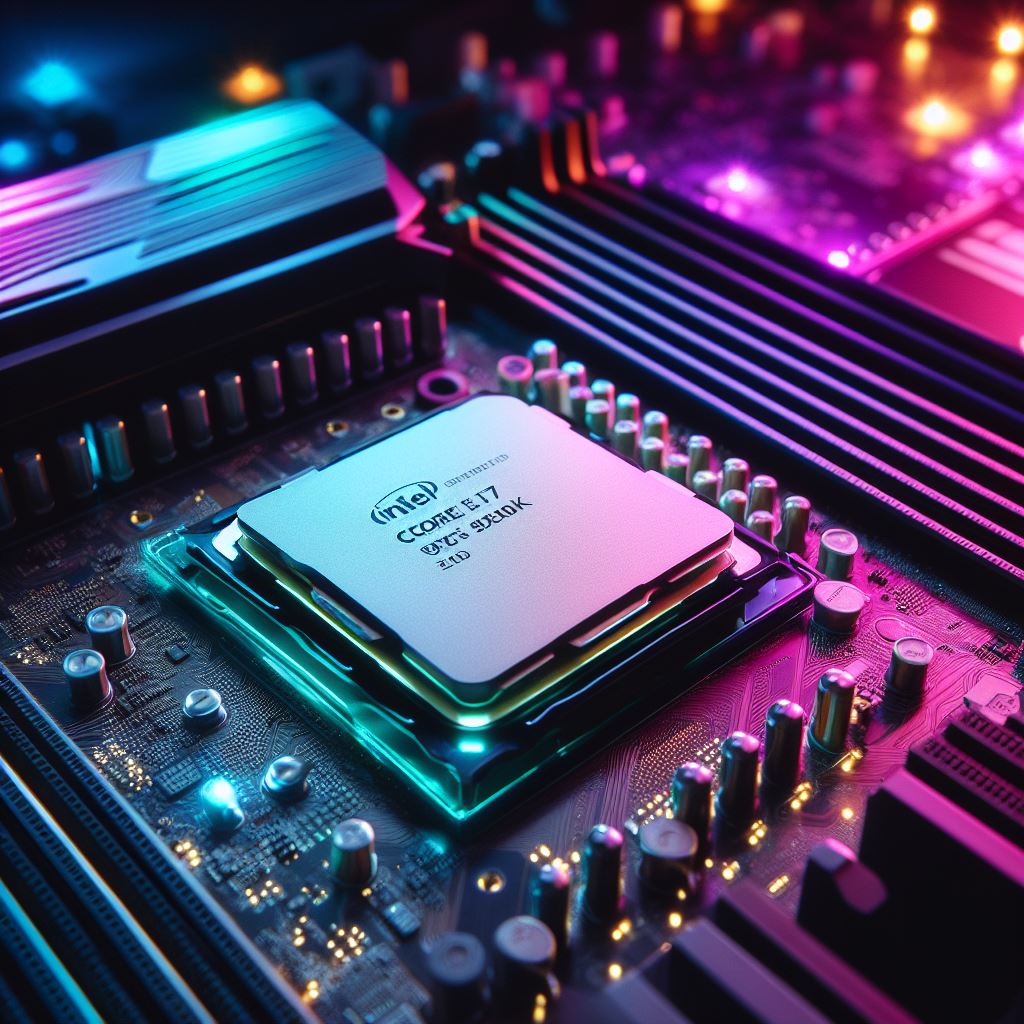
The i7-9700k is designed for the Intel 300-series chipset. This includes the Z390, H370, B365, and H310 chipset motherboards. However, not all chipsets are equal in terms of features and performance. For full functionality and overclocking support, a Z390 chipset motherboard is recommended. The Z390 chipset allows CPU and memory overclocking, as well as providing more PCIe lanes, USB ports, and M.2 slots than the other chipsets.
Socket
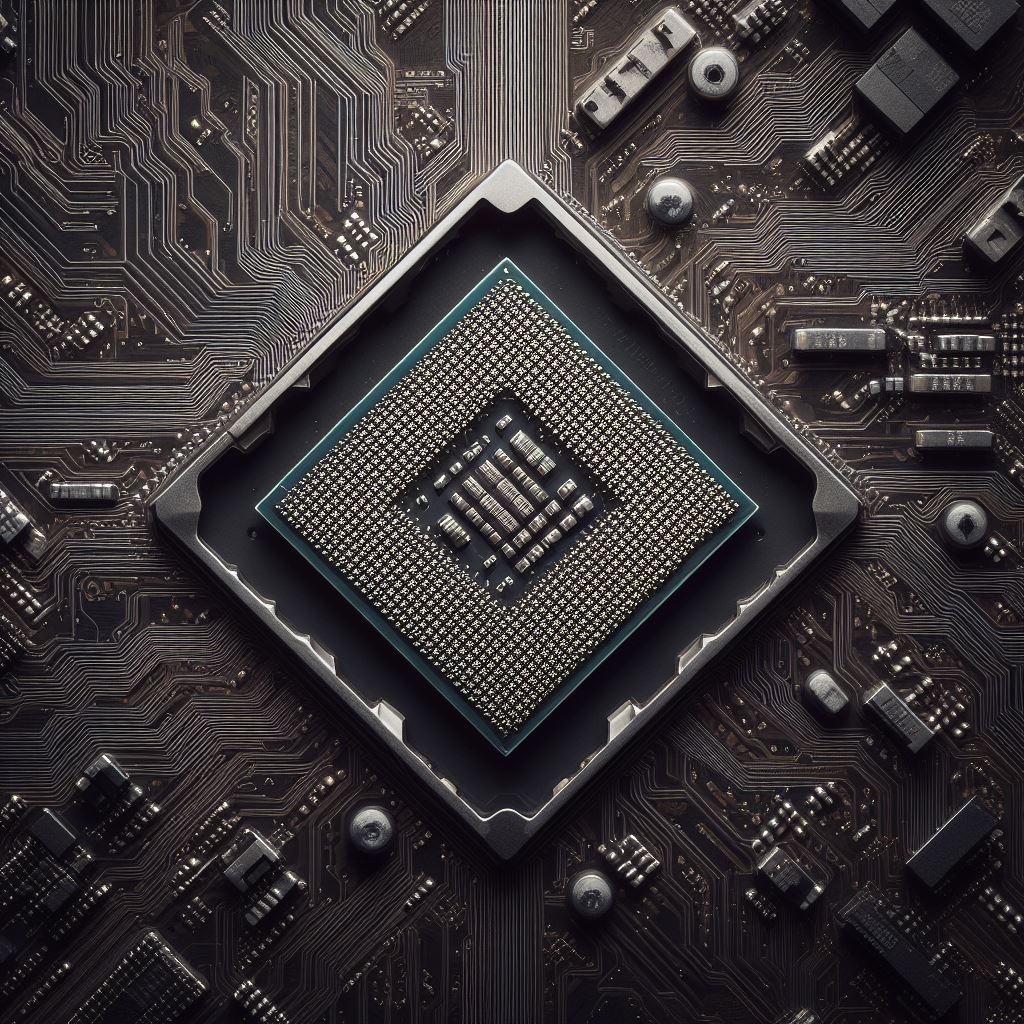
The i7-9700k uses the LGA 1151 socket. This means that the motherboard must have an LGA 1151 socket to be compatible with the CPU. However, not all LGA 1151 motherboards are compatible with the 9th generation processors. Some older LGA 1151 boards may require a BIOS update to support the 9700k. Therefore, it is advisable to check the motherboard’s compatibility list before buying.
Power
The 9700k has a 95W TDP (thermal design power). This is the amount of power that the CPU consumes under normal operation. However, when overclocking or under heavy load, the power consumption can increase significantly. Therefore, it is important to make sure that the motherboard VRMs (voltage regulator modules) are capable of delivering stable power to support the CPU. High-end Z390 boards designed for overclocking usually have beefier power phases, higher quality components, and better cooling solutions for the VRMs.
Cooling
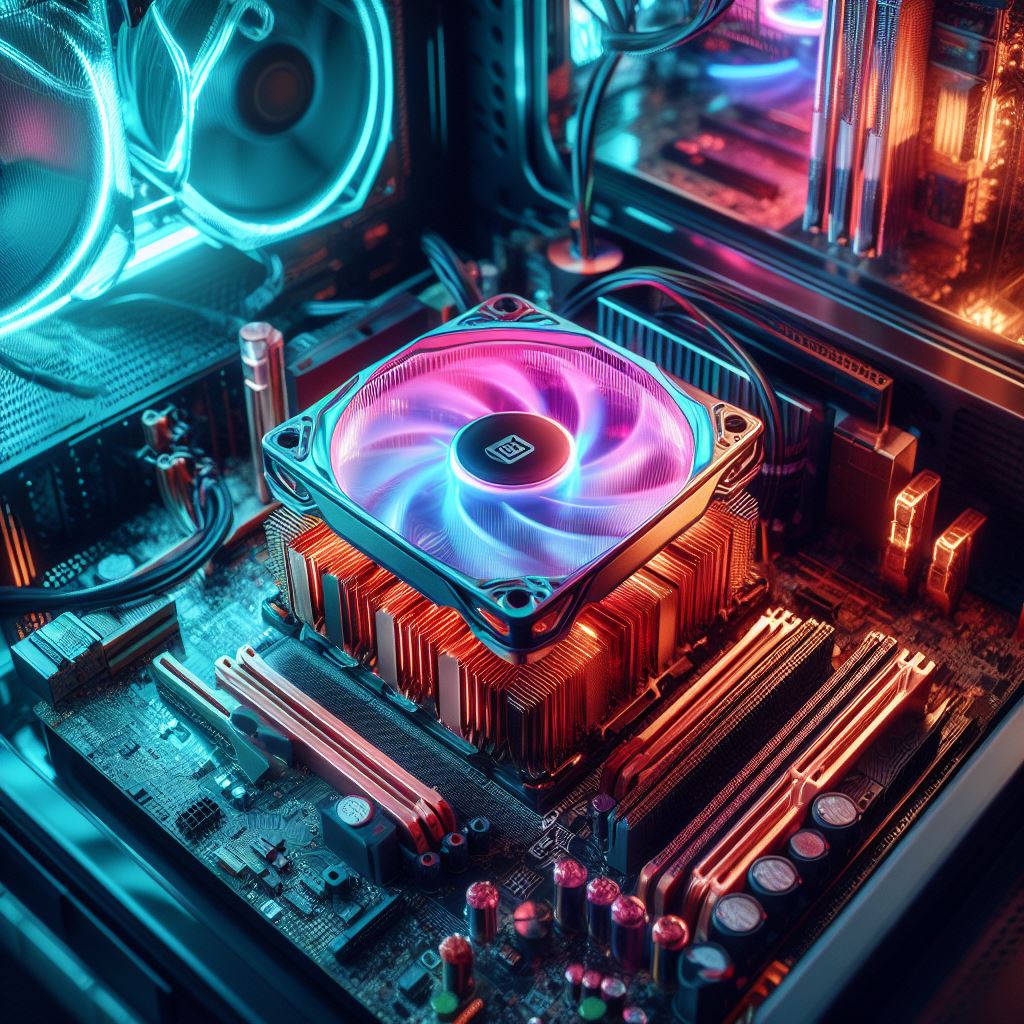
Since the 9700k runs hot, especially when overclocked, a good cooling system is essential to keep the CPU temperatures under control. A motherboard with good VRMs and power design will help provide adequate power delivery for the CPU. Quality onboard heatsinks will also help dissipate heat from the VRMs and chipset. Additionally, a good CPU cooler is required to cool down the CPU itself. A liquid cooler or a high-end air cooler is recommended for optimal cooling performance.
Memory support
The i7-9700k supports dual-channel DDR4 memory up to 2666MHz speed. This means that the motherboard should have at least two DIMM slots to enable dual-channel mode, which improves memory bandwidth and performance. However, most motherboards with 4 DIMM slots are recommended to allow installing more RAM for future upgrades or multitasking purposes. Overclocking RAM will require a Z390 motherboard, as well as compatible memory modules that can support higher speeds and timings.
PCIe lanes
The 9700k has 16 PCIe 3.0 lanes for graphics and storage devices. These lanes are directly connected to the CPU and offer the highest bandwidth and lowest latency. Z390 boards have additional PCIe lanes from the chipset, which are shared among other devices such as USB ports, SATA ports, and M.2 slots. Multiple PCIe x16 slots are ideal for multi-GPU setups, such as SLI or CrossFireX. However, note that using more than one GPU will split the CPU’s PCIe lanes into x8/x8 or x8/x4/x4 configurations, which may affect performance slightly. M.2 NVMe SSD slots will require PCIe lanes for peak performance. Some motherboards have dedicated M.2 slots that use the CPU’s PCIe lanes, while others use the chipset’s PCIe lanes or share them with other slots.
Overclocking
For overclocking the CPU and RAM, a Z390 motherboard is required. Overclocking allows increasing the clock speed and voltage of the CPU and RAM to achieve higher performance levels. However, overclocking also increases power consumption, heat generation, and instability risks. Therefore, a good motherboard with good VRM components and power phase designs will impact stable overclocks. High-end boards often offer simplified OC controls and settings in the BIOS or software utilities. They also have features such as debug LEDs, voltage checkpoints, clear CMOS buttons, dual BIOS switches, etc., to help troubleshoot any issues that may arise during overclocking.
i7-9700K Motherboard Compatibility
The i7-9700K is designed for the Intel 300-series chipset, which includes the Z390, H370, B365, and H310 chipsets. However, not all chipsets are equal in terms of features and performance. For full functionality and overclocking support, a Z390 chipset motherboard is recommended. The Z390 chipset allows CPU and memory overclocking, as well as providing more PCIe lanes, USB ports, and M.2 slots than the other chipsets.
Z390 Chipset

The Z390 chipset is the best option for the i7-9700k, providing full support and overclocking capabilities. It is the flagship chipset of the Intel 300-series and offers the most features and performance for the 9th generation processors. Key features:
- Supports overclocking the CPU and memory: This means that you can increase the clock speed and voltage of the CPU and RAM to achieve higher performance levels. However, overclocking also increases power consumption, heat generation, and instability risks. Therefore, a good motherboard with good VRM components and power phase designs will impact stable overclocks. High-end boards often offer simplified OC controls and settings in the BIOS or software utilities. They also have features such as debug LEDs, voltage checkpoints, clear CMOS buttons, dual BIOS switches, etc., to help troubleshoot any issues that may arise during overclocking.
- Higher transistor limits for more power delivery to CPU: The Z390 chipset has a higher transistor density than the other chipsets, which allows it to deliver more power to the CPU. This is especially important for overclocking, as higher power delivery can improve stability and performance.
- More PCIe lanes – up to 24 from chipset. The Z390 chipset provides up to 24 PCIe 3.0 lanes from the chipset, which are shared among other devices such as USB ports, SATA ports, and M.2 slots. These PCIe lanes are in addition to the 16 PCIe lanes that the CPU provides directly. Having more PCIe lanes allows you to connect more devices and peripherals to your motherboard, such as graphics cards, SSDs, sound cards, etc., without compromising bandwidth or performance.
- Supports NVMe PCIe SSDs: The Z390 chipset supports NVMe PCIe SSDs, which are the fastest type of SSDs available. They use PCIe lanes to communicate with the CPU, instead of SATA cables, which offer lower speeds and latency. NVMe PCIe SSDs can offer up to 4 times faster read and write speeds than SATA SSDs, which can improve boot times, load times, and overall system responsiveness.
- Allows memory speeds up to 4600MHz when overclocked: The Z390 chipset supports DDR4 memory speeds up to 2666MHz natively, but it also allows you to overclock your memory modules to higher speeds if they are compatible. Some Z390 boards can support memory speeds up to 4600MHz or even higher when overclocked, which can improve memory bandwidth and performance.
The Z390 chipset is ideal for performance users and overclocking enthusiasts who want to maximize the potential of their i7-9700k processor.
H370 Chipset

The H370 is a mid-range chipset option for the i7-9700k. It offers basic functionality and compatibility without overclocking support or advanced features. Key features:
- Supports standard CPU speeds without overclocking: This means that you can use the i7-9700k at its default clock speed of 3.6GHz (4.9GHz boost) without any adjustments or modifications. However, you cannot increase the clock speed or voltage of the CPU or RAM beyond their specifications, which may limit your performance potential.
- Allows memory speeds up to 2666MHz: This means that you can use DDR4 memory modules up to 2666MHz speed without any issues. However, you cannot overclock your memory modules to higher speeds, even if they are compatible.
- Fewer PCIe lanes than Z390 – up to 12 from chipset: The H370 chipset provides up to 12 PCIe 3.0 lanes from the chipset, which are shared among other devices such as USB ports, SATA ports, and M.2 slots. These PCIe lanes are in addition to the 16 PCIe lanes that the CPU provides directly. Having fewer PCIe lanes means that you may have fewer options to connect devices and peripherals to your motherboard, and you may experience lower bandwidth or performance if you use multiple devices that require PCIe lanes.
- No support for CPU overclocking: The H370 chipset does not support overclocking the CPU or RAM, which means that you cannot increase their clock speed or voltage beyond their specifications. This may limit your performance potential and customization options.
The H370 chipset is a good value pick for basic users who do not care about overclocking or advanced features and just want a compatible motherboard for their i7-9700k processor.
B365 Chipset
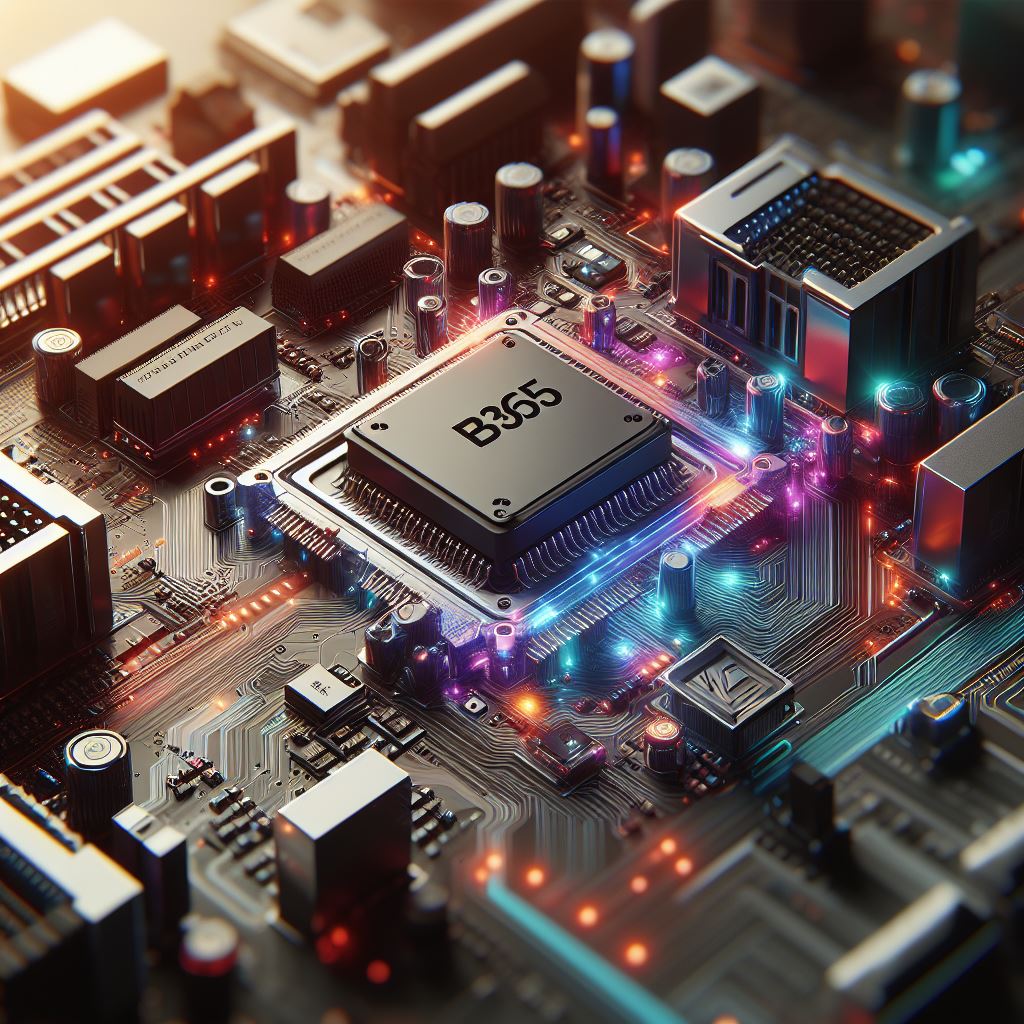
The B365 has essential features for the i7-9700k. It is similar to the H370 chipset but with some minor differences. Key features:
- No overclocking support: Like the H370 chipset, the B365 chipset does not support overclocking the CPU or RAM, which means that you cannot increase their clock speed or voltage beyond their specifications. This may limit your performance potential and customization options.
- Support for 2666MHz memory speeds: Like the H370 chipset, the B365 chipset supports DDR4 memory speeds up to 2666MHz without any issues. However, you cannot overclock your memory modules to higher speeds, even if they are compatible.
- Just 6 PCIe lanes from chipset: The B365 chipset provides just 6 PCIe 3.0 lanes from the chipset, which are shared among other devices such as USB ports, SATA ports, and M.2 slots. These PCIe lanes are in addition to the 16 PCIe lanes that the CPU provides directly. Having just 6 PCIe lanes means that you have very limited options to connect devices and peripherals to your motherboard, and you may experience very low bandwidth or performance if you use multiple devices that require PCIe lanes.
- Basic CPU features without overclocking: The B365 chipset supports basic CPU features such as Turbo Boost Technology 2.0 and Hyper-Threading Technology without any issues. However, it does not support advanced features such as Optane Memory or vPro Technology.
The B365 chipset is an entry-level option for basic users who do not need any overclocking or advanced features and just want a cheap motherboard for their i7-9700k processor.
H310 Chipset

The H310 is the most affordable chipset option but with limited features:
- No overclocking support: Like the other chipsets except Z390, the H310 chipset does not support overclocking the CPU or RAM, which means that you cannot increase their clock speed or voltage beyond their specifications. This may limit your performance potential and customization options.
- Only supports up to DDR4-2666 memory: Unlike the other chipsets, the H310 chipset only supports DDR4 memory speeds up to 2666MHz, and not higher. This means that you cannot use faster memory modules, even if they are compatible.
- Just 6 PCIe lanes from chipset: Like the B365 chipset, the H310 chipset provides just 6 PCIe 3.0 lanes from the chipset, which are shared among other devices such as USB ports, SATA ports, and M.2 slots. These PCIe lanes are in addition to the 16 PCIe lanes that the CPU provides directly. Having just 6 PCIe lanes means that you have very limited options to connect devices and peripherals to your motherboard, and you may experience very low bandwidth or performance if you use multiple devices that require PCIe lanes.
- Basic power design and components: The H310 chipset has a very basic power design and components, which may not be able to deliver stable power to the CPU under heavy load or stress. This may affect performance and stability.
The H310 chipset is a very budget-oriented option for basic users who do not care about any features or performance and just want the cheapest motherboard for their i7-9700k processor.
Conclusion
The Intel Core i7-9700k is an excellent 8-core chip with effective Hyper-Threading and an unlocked base multiplier for overclocking. Moreover, this processor can reach up to the 5.0GHz clock speed if your system has the best motherboard for i7 9700k. But finding a compatible one isn’t easy since there are so many motherboards in the market that confuse us when choosing one. Therefore, we have tested and reviewed some best-suiting motherboards in this post with their pros and cons for your ease.
Suppose you’re looking for a best-value motherboard. The Gigabyte Z370 Aorus Gaming 7 or ASUS Prime Z390-A is perfect for you. On the other hand, you can check the MSI MPS Z390 Gaming Pro Carbon for all-rounder utility or the MSI MEG Z390 Godlike in case you want to build a top-tier gaming PC with every possible option. Moreover, compact-PC builders can check out the ASUS Rog Strix Z370-G Gaming, a micro ATX motherboard, and ASUS Rog Strix Z390-I Gaming, a mini ITX motherboard. For more, you must check the list.
Frequently Asked Questions
Is i7-9700K compatible with motherboards?
Yes, the Intel Core i7-9700k is compatible with several motherboards. Remember, pair this chip with any good-quality motherboard with a 300-series chipset and the LGA1151 CPU socket. This way, you can get the most out of the processor without compromising performance or compatibility.
Is an i7-9700K a high-end CPU?
The Intel Core i7-9700k isn’t a high-end chip but an excellent mid-range mainstream CPU to deal with the current-era games at mid-tier settings. Even though it has 8 cores and 16 threads, it lacks to be in the high-end category since it lacks Hyper-Threading and PCIe 4.0 support.
How much RAM can an i7-9700K handle?
The Intel Core i7-9700k can handle DDR4 RAM up to 128GB with a memory clock speed of up to 2666MHz. In addition, you can put dual-channel memory kits with this processor and get a maximum of 41.6 GB/s memory bandwidth. Note that the i7-9700k doesn’t support ECC memory so avoid it.
What chipset does the i7-9700K use?
You can pair any motherboard with the Intel Core i7-9700k with an LGA 1151 CPU socket and a 300-series chipset. This way, you can utilize excellent CPU performance without worrying about compatibility issues.


